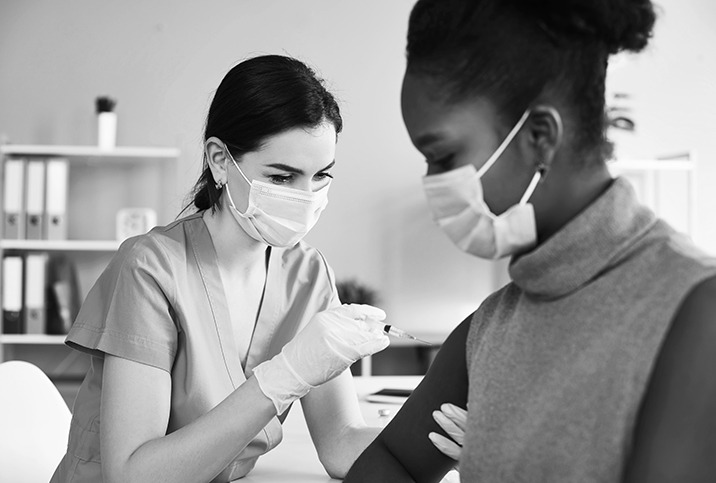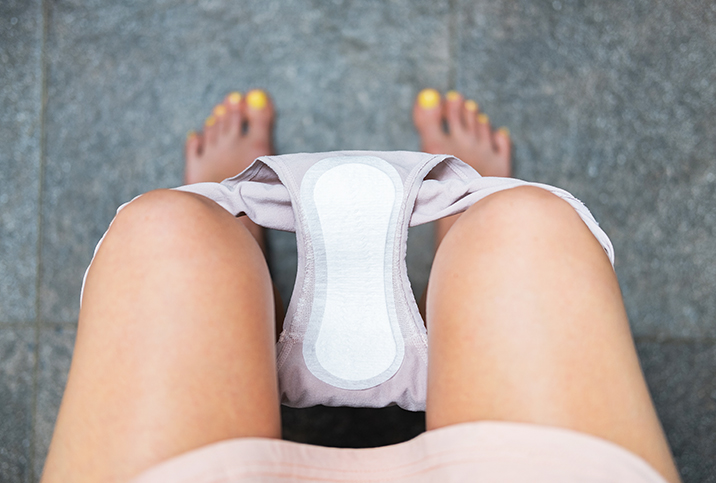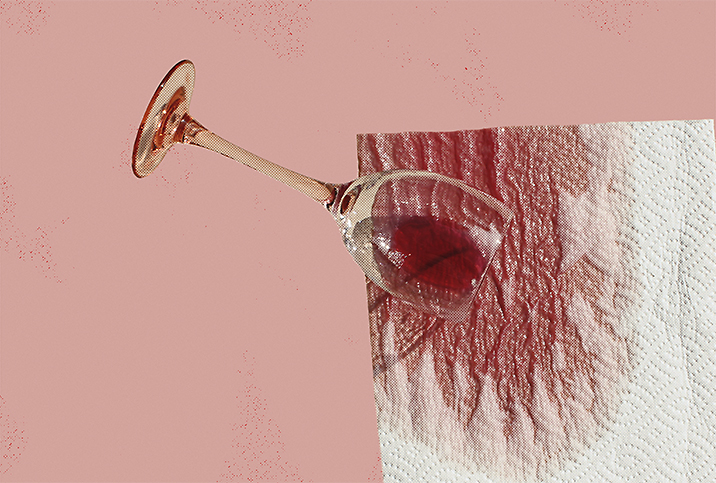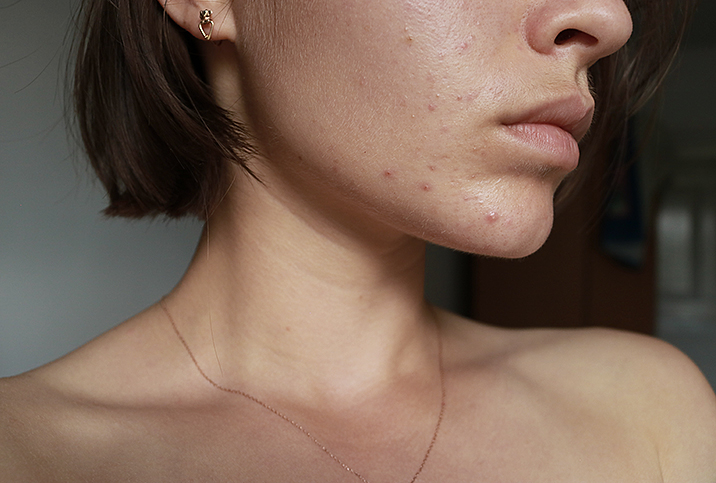What is the COVID-19 Vaccine Doing to Our Periods?

Rachel Charlene Lewis, a 28-year-old in Wilmington, North Carolina, was caught off guard when she had an unexpected and uniquely heavy flow the day after her second dose of the COVID-19 vaccine. Her cycle was typically regular—she tracks her period via app—and she’d never experienced this before. “If I didn’t work from home, and it hadn’t been a weekend, I don’t know what I would’ve done,” Lewis said. “I was getting up to go to the bathroom and giving birth to my period over and over and over again.”
At the time, Lewis didn’t associate this with her recent vaccine shot. But after consulting a friend and finding threads on both Reddit and Twitter where users discussed cycle irregularity post-vaccine, she joined numerous menstruators in wondering: Is there a connection?
Is there a missing link?
Right now, no scientific data supports the claim that the vaccine affects the menstrual cycle. Experts affirm that, while a cycle switch-up may not be the most pleasant experience, the vaccine is safe, will not harm fertility, and people with periods should continue to get vaccinated. “Rest assured, it’s not going to be a side effect that’s going to harm you,” Houston-based gynecologist Vonne Jones, MD, said. “It could be linked to the vaccine, but it’s going to be hard to tell that right now.”
While there’s not yet a firm connection between the vaccine and menstrual irregularity, Jen Gunter, an OB-GYN in Cedar Park, Texas, wrote a blog post listing several reasons the latter could occur post-vaccine, ranging from the body’s complex immune system responses to simply the stress or relief of getting vaccinated. And there’s evidence that COVID-19 can mess with your cycle, according to a January 2021 study in Reproductive BioMedicine Online.
While an irregular period is no cause for alarm, if you’re experiencing severe cramping, postmenopausal bleeding, heavy bleeding that saturates a large pad in an hour for more than two hours in a row, passing large clots for more than two hours or feeling lightheaded or fatigued, Gunter and Jones each advised reaching out to a physician as soon as possible.
Here's the cause for confusion
The lack of data about the vaccine's impact on menstruation does a disservice to both medical providers and their patients. “It would have been helpful to have this tracked, so we could have advised patients,” said Amy Roskin, MD, medical director and head of clinical operations at online birth-control provider The Pill Club. “Instead, we have to rely on anecdotal reports while this is being investigated.”
That investigation has been taken on by two researchers from the University of Illinois who launched a study asking women who menstruate, currently or in the past, to report their experiences of menstrual bleeding after getting the vaccine. According to TIME, as of mid-April, more than 19,000 participants had responded to the survey.
It's important to note that this kind of data could’ve served a greater purpose during vaccine trials, rather than being collected retrospectively. “It is shameful that researchers have not included this line of questioning in their studies thus far,” said Nicole Williams, MD, gynecological surgeon and founder of The Gynecology Institute of Chicago. “I hope that now that will change.”
For women’s health, this is nothing new
Historically, efforts to better understand women’s bodily experiences have been slow-going. As The New York Times reported in April, women were often excluded from medical trials because of their periods or potential for pregnancy. It wasn’t until 1993 that women were required by law to be included in government-funded trials.
Despite the law, we find ourselves nearly two decades later on the other side of perhaps the most urgent vaccine trials of our lifetime, with apparently scarce data on how the said vaccine could affect the menstrual cycle or pregnancy.
The failure to consider women’s health experiences in clinical research is reflected in the collective confusion so often felt by people who menstruate. For example, at nearly 30 years old, Lewis points out that she’s never had a gynecologist walk her through the things that could impact her cycle.
“If it’s the first time we’re talking about our periods, we’re all going to be a little more invested and maybe have stronger reactions than we would if we talked about this all the time,” Lewis said. “So, I’m hopeful that this does start that conversation and lets us have a space to question our own bodies and how they react to things.”


















